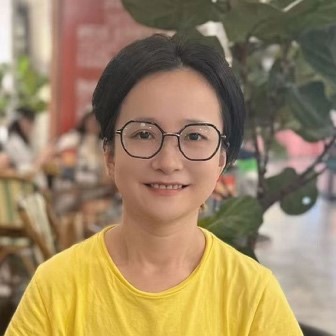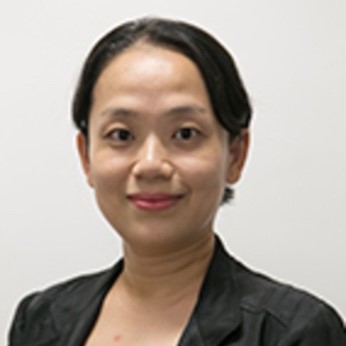Research Highlighted
Huang, Q., & Jung, J. (2023). Career decision-making among Chinese doctoral engineering graduates after studying in the United States, Higher Education Quarterly, doi: 10.1111/hequ.12475
About the study
The article “Career decision-making among Chinese doctoral engineering graduates after studying in the United States” explores the various factors influencing the career decisions of Chinese doctoral graduates in mechanical engineering who completed their degrees in the US. Based on the intention to return to China, the study categorizes participants into four types: fresh returnees, advanced returnees, hesitant stayers, and resolute stayers. The study also highlights the personal and contextual factors affecting their decision-making process, such as family reasons, job markets, and visa restrictions.
The participants considered whether to return to China or stay in the US, with some deciding to work in multinational companies in China to maintain their ‘transnational’ agency. The study also notes the impact of Chinese government policies aimed at reversing the brain drain, though these have been more successful in attracting quantity over quality, with the best talents often choosing to stay in the US due to the institutional culture in China.
Furthermore, the study discusses the graduates’ choices between academic and non-academic careers, with many showing a preference for the private sector, influenced by their work with industry during their doctoral programs. This reflects a shift from the traditional academic career trajectory, valuing practical applications and community engagement.
The concept of agency is crucial throughout the study, with the graduates’ decisions based on strategic consideration of multiple factors. The study suggests that universities could reshape doctoral education goals to better prepare students for a range of professional job markets, considering field characteristics and the evolving nature of STEM careers.
Literature
Firstly, the literature identifies various push and pull factors that affect the decisions of overseas-trained doctoral graduates regarding returning to their home countries after completing their studies. Push factors include job difficulties in the host country, visa regulations, and language and cultural barriers (Pham, 2021). Pull factors are often related to emerging career opportunities in the home country’s economy, familial obligations, and social connections (Hao et al., 2016; Liu et al., 2022).
Secondly, doctoral graduates traditionally exhibit a strong interest in academic careers, influenced by the research-focused training received during their doctoral programs (Horta & Li, 2023). Nevertheless, recent studies, such as that by Griffin et al. (2022), indicate a shift in this trend, with STEM field students expressing more interest in diverse career paths, including non-research roles. Engineering doctoral graduates, in particular, are willing to engage in various engineering-related occupations to maintain their professional identity, which is often shaped by industry experience (Jackson, 2015).
Thirdly, the concept of agency is pivotal in understanding how graduates strategically navigate their career decisions (Jager et al., 2017). Agency involves both strategic perspectives and actions aimed at important goals and is expressed through individuals’ capacity to utilize various resources for career decisions (Pham & Soltani, 2021). These experiences enable students to respond to their needs, face challenges, collaborate with peers, and work towards becoming who they aspire to be. However, it’s important to recognize that the exercise of agency can be constrained by structural and external factors such as the economic environment and labor market conditions (Tholen, 2015). Nonetheless, individuals with higher agency levels understand the critical role of personal abilities in career success despite these constraints (Griffin et al., 2022)
Method
This qualitative research involved semi-structured interviews with 16 Chinese mechanical engineering doctoral graduates from top US research universities. Each interview lasted between 40 and 70 minutes and took place via Zoom or WeChat video calls due to the COVID-19 pandemic. The interviews were conducted in Chinese and later translated into English, with the primary questions focusing on the participants’ decision-making processes regarding returning to China or staying in the US, and their choice between academic and non-academic career paths.
The data collected were subjected to thematic analysis. Sub-themes were identified, such as feelings of being outsiders in a foreign culture, work-life balance, and self-assessment of personality. These were then categorized into primary themes that included the four types of participants based on their inclination to return to China or remain in the US, and their choice between academic and non-academic careers.
Conclusion & Discussion
The study elaborates on the nuanced decisions faced by graduates, which are influenced by a myriad of factors such as family considerations, job market realities, and government policies. The study finds that these decisions are not binary but rather reflect a strategic evaluation of various options and conditions. It also notes the graduates’ preference for non-academic careers, influenced by their practical work with industry during their doctoral programs.
The concept of agency is central to understanding their career choices, with graduates demonstrating strategic behavior in navigating their professional paths. Despite the incentives offered by Chinese policies, the study observes that the most talented individuals often choose to stay in the US, driven by preferences for the research environment and concerns about the academic culture in China. The findings suggest the need for universities to adapt doctoral education to prepare students for diverse professional markets. The study acknowledges its limitations, such as its focus on a single discipline and the specific context of Chinese students, and calls for future research to explore these dynamics further, including longitudinal studies and comparative research across different nationalities.
(864 words)
References
Hao, J., Wen, W., & Welch, A. (2016). When sojourners return: Employment opportunities and challenges facing highskilled Chinese returnees. Asian and Pacific Migration Journal, 25(1), 22–40.
Horta, H., & Li, H. (2023). Nothing but publishing: The overriding goal of PhD students in mainland China, Hong Kong, and Macau. Studies in Higher Education, 48(2), 263–282.
Griffin, K. A., Miller, C., & Roksa, J. (2022). Agency and career indecision among biological science graduate students. Studies in Graduate and Postdoctoral Education, 14(1), 99–113.
Jackson, D. (2015). Employability skill development in work-integrated learning: Barriers and best practice. Studies in Higher Education, 40(2), 350–367.
Jager, A. J., Mitchall, A., O’Meara, K., Grantham, A., Zhang, J., Eliason, J., & Cowdery, K. (2017). Push and pull: The influence of race/ethnicity on agency in doctoral student career advancement. Journal of Diversity in Higher Education, 10(3), 232–252.
Liu, D., Xu, Y., Zhao, T., & Che, S. (2022). Academic career development of Chinese returnees with overseas Ph.D. degrees: A bioecological development perspective. Frontiers in Psychology, 13, 859240.
Pham, T. (2021). Conceptualising the employability agency of international graduates (1st ed.). Centre for Global Higher Education Working Papers; No. 75. University of Oxford
Pham, T., & Soltani, B. (2021). Enhancing student education transitions and employability: From theory to practice (1st ed.). Routledge
Tholen, G. (2015). What can research into graduate employability tell us about agency and structure? British Journal of Sociology of Education, 36(5), 766–784.
Author’s bio
Dr. Qian Huang

Dr. Qian Huang is a Research Fellow at the Lee Kuan Yew Centre for Innovative Cities (LKYCIC), Singapore University of Technology and Design. She obtained her EdD from the University of Hong Kong in Dec 2022. Her EdD dissertation is about the impact of studying abroad on engineering students’ employability. She examined how engineering graduates develop resources and capitals to manage their work transition after studying abroad.
Dr. Jisun Jung

Dr. Jisun Jung is an Associate Professor in the Faculty of Education at the University of Hong Kong. Her current research focuses on the academic profession, doctoral education, employment and postgraduate studies and higher education research in Asia. She is currently co-editor of Higher Education Research & Development.
Managing Editor: Xin Fan
